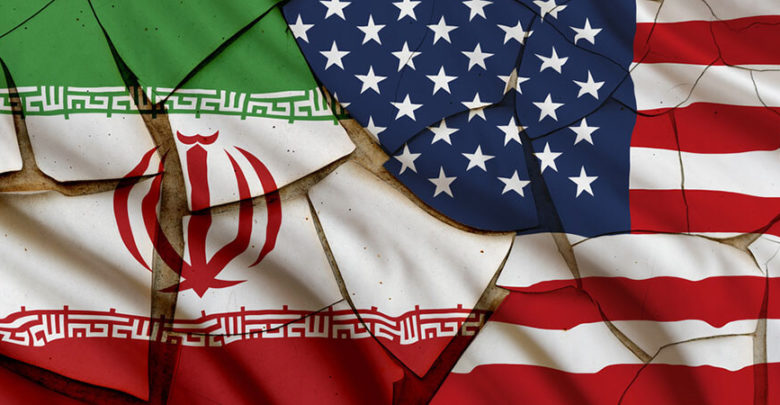سياسة الضغوط القصوى الأمريكية هل تعكس تحولات استراتيجية جديدة تجاه الأزمة الإيرانية
The United States and the policy of maximum pressure Does it reflect new strategic shifts towards the Iranian crisis

اعداد : د. محمد عبدالحفيظ الشيخ – عميد كلية القانون، جامعة الجفرة ــــ ليبيا
- المركز الديمقراطي العربي
- مجلة مدارات إيرانية : العدد الرابع عشر كانون الأول – ديسمبر 2021 المجلد 4, دورية علمية محكمة تصدر عن #المركز_الديمقراطي_العربي ألمانيا –برلين” .تعنى بالشأن الإيراني داخليا واقليميا ودوليا.
-
فصلنامه مدارات إيرانية فصلنامه أي علمي از طرف مركز دمكراسي عربي برلن منتشر مي شود.
للأطلاع على البحث “pdf” من خلال الرابط المرفق :-
ملخص :
تناقش هذه الدراسة تأثير سياسة الضغوط القصوى التي فرضتها الولايات المتحدة على إيران، التي بدأت منذ انسحاب إدارة الرئيس الأمريكي السابق “دونالد ترامب” من الاتفاق النووي عام 2018، ومن ثم تحديد النتائج التي حققتها في ظل خيارات وبدائل النظام الإيراني للتحرر من سطوة تلك العقوبات.
يبدو واضحاً أن هذه العقوبات أثرت بشكل واضح وخطير في الوضع الاقتصادي الإيراني، لكنها لم تحقق حتى الآن النتائج المرجوة منها، كإجبار إيران على إعادة التفاوض حول برنامجها النووي، وملفات أخرى كبرنامجها الصاروخي والتدخل الإقليمي، كما لم تثن إيران عن السلوك العدواني، بل جاءت بنتائج عكسية في الجانبين السياسي والأمني، حيث أظهرت العقوبات ارتفاع شدة الهجمات ضد ناقلات النفط والسفن التجارية في مياه الخليج العربي، بيد أن سياسة العقوبات القصوى لا تزال الخيار الأنسب للولايات المتحدة تمهيداً لاتخاذ خطوات لاحقة قد تكون أكثر قسوة في المستقبل.
ويبقى نجاح سياسة الضغوط القصوى في تحقيق أهدافها مرهوناً بقدرة الاقتصاد الإيراني على الصمود في وجه تلك العقوبات، وبقوة المناعة لديه، بالإضافة إلى الظروف الإقليمية والدولية وبمدى التجاوب أو الخضوع من قبل اللاعبين الإقليميين والدوليين لتطبيق تلك العقوبات، التي عادة ما تخضع لقاعدة المصالح بين الدول وليس وفقاً لقاعدة المبادئ.
Abstract
This study discusses the impact of the maximum economic pressure policy imposed by the United States on Iran since the withdrawal of the administration of former President “Donald Trump” from the nuclear agreement in 2018, and determines the results it has achieved in light of the Iranian regime’s options and alternatives in dealing with these sanctions.
It is clear that these sanctions have clearly and seriously affected the Iranian economic situation, but they have not yet achieved the desired results, such as forcing Iran to renegotiate its nuclear program, and other files such as its missile program and regional intervention. It is counterproductive on the political and security side, as the sanctions showed the high intensity of attacks against oil tankers and commercial ships in the waters of the Arabian Gulf. However, the maximum sanctions policy is still the most appropriate option for the United States in preparation for taking subsequent steps that may be more severe in the future.
The success of the policy of maximum pressure in achieving its goals depends on the ability of the Iranian economy to withstand these sanctions, and its strength of immunity, in addition to regional and international conditions and the extent of response or submission by regional and international players to the application of these sanctions, which are usually subject to the base of interests between states and not According to the rule of principles.




